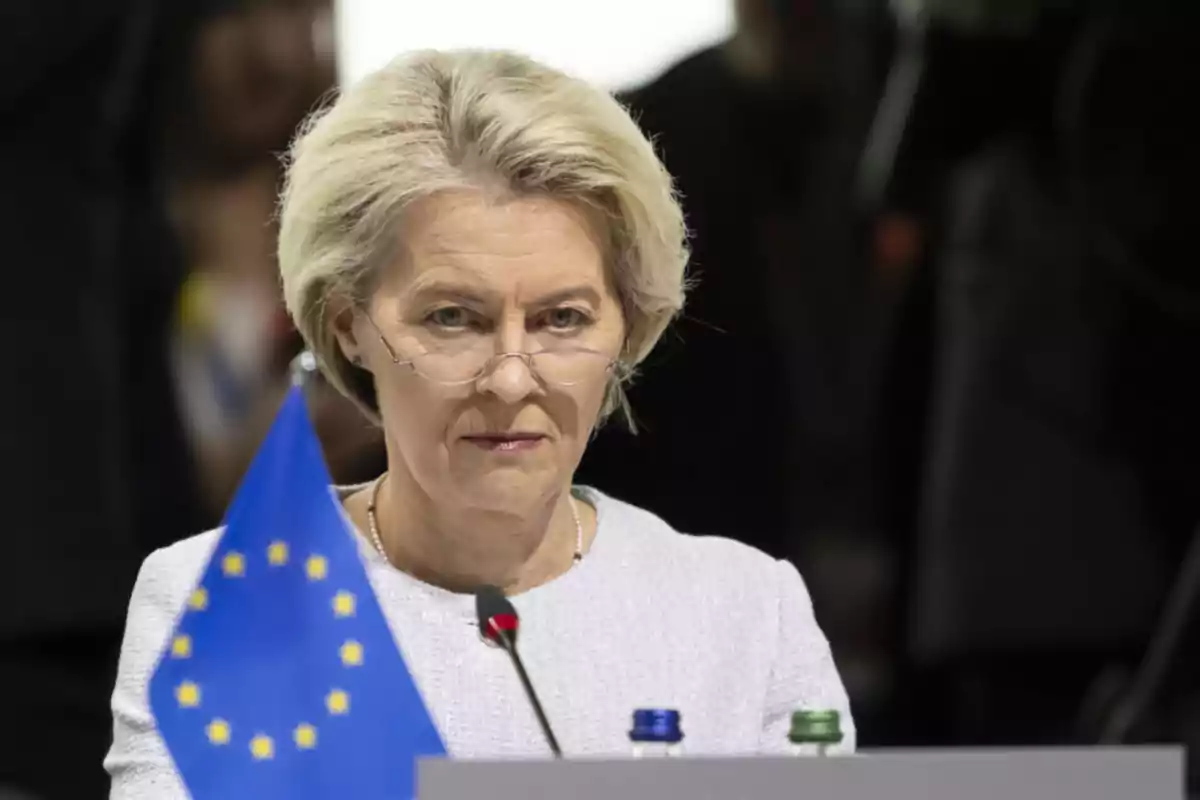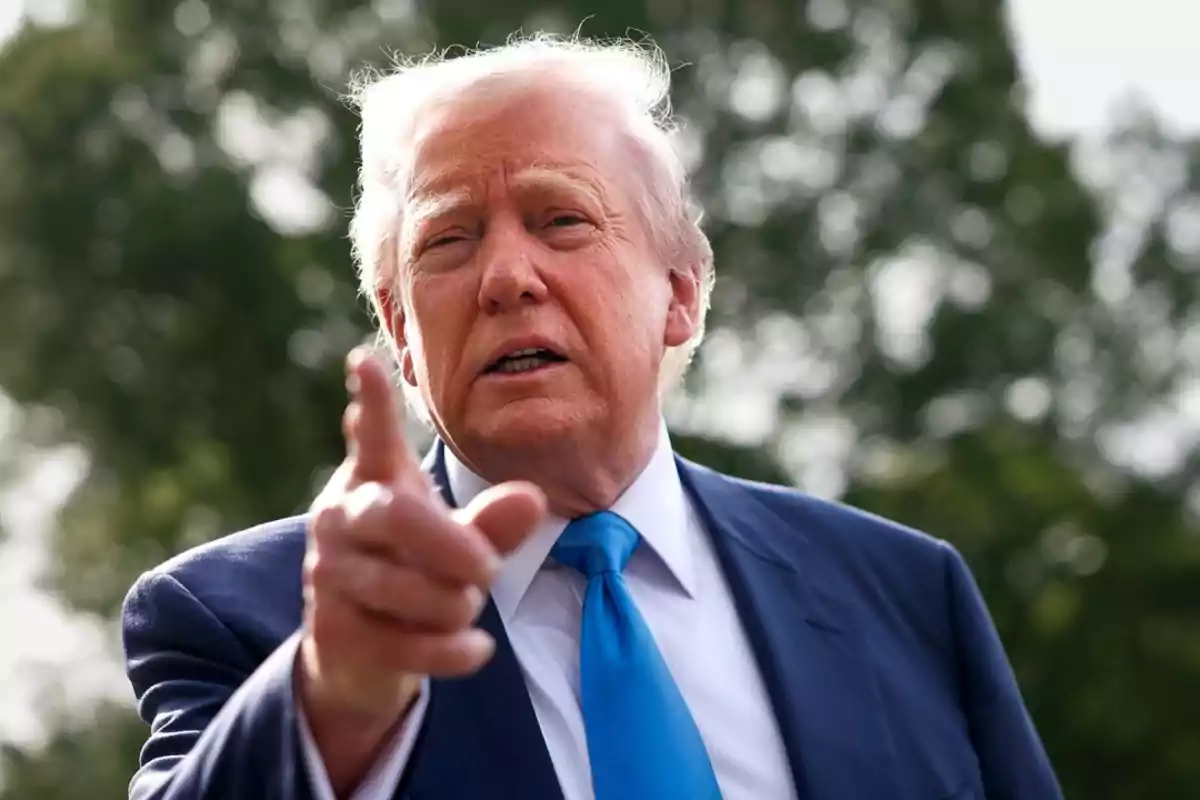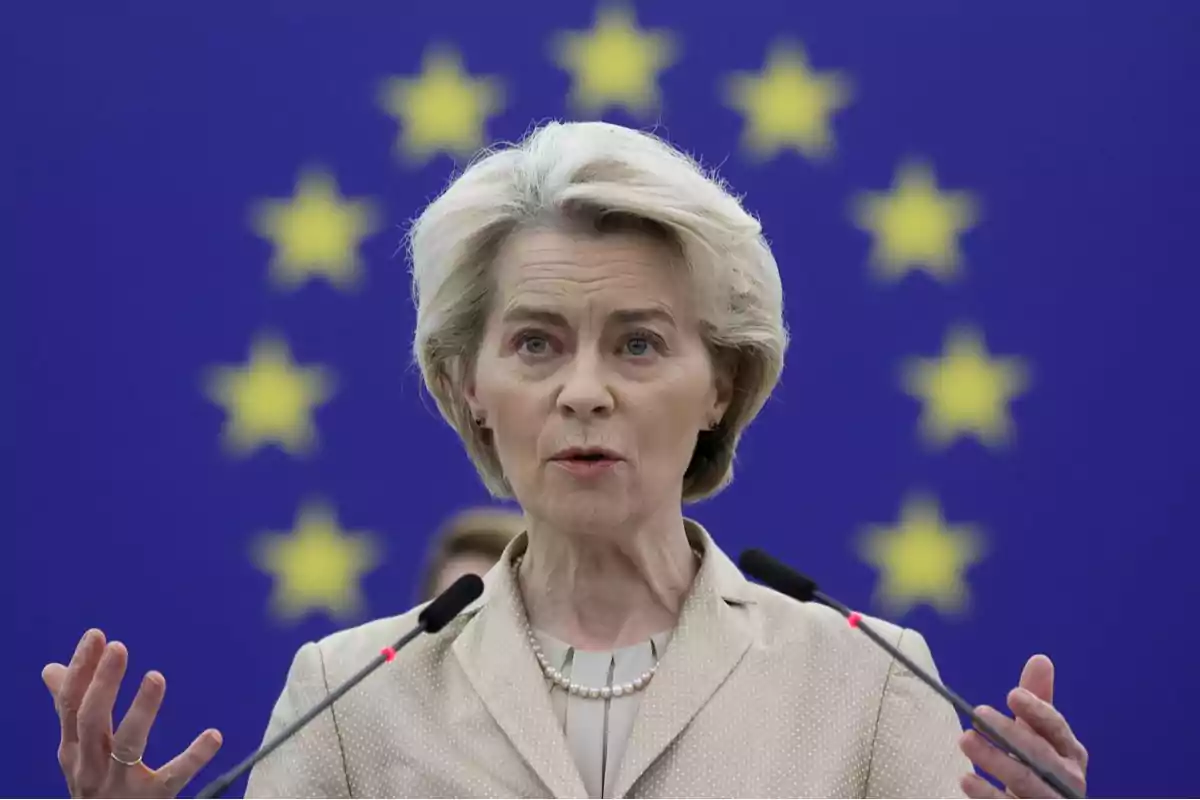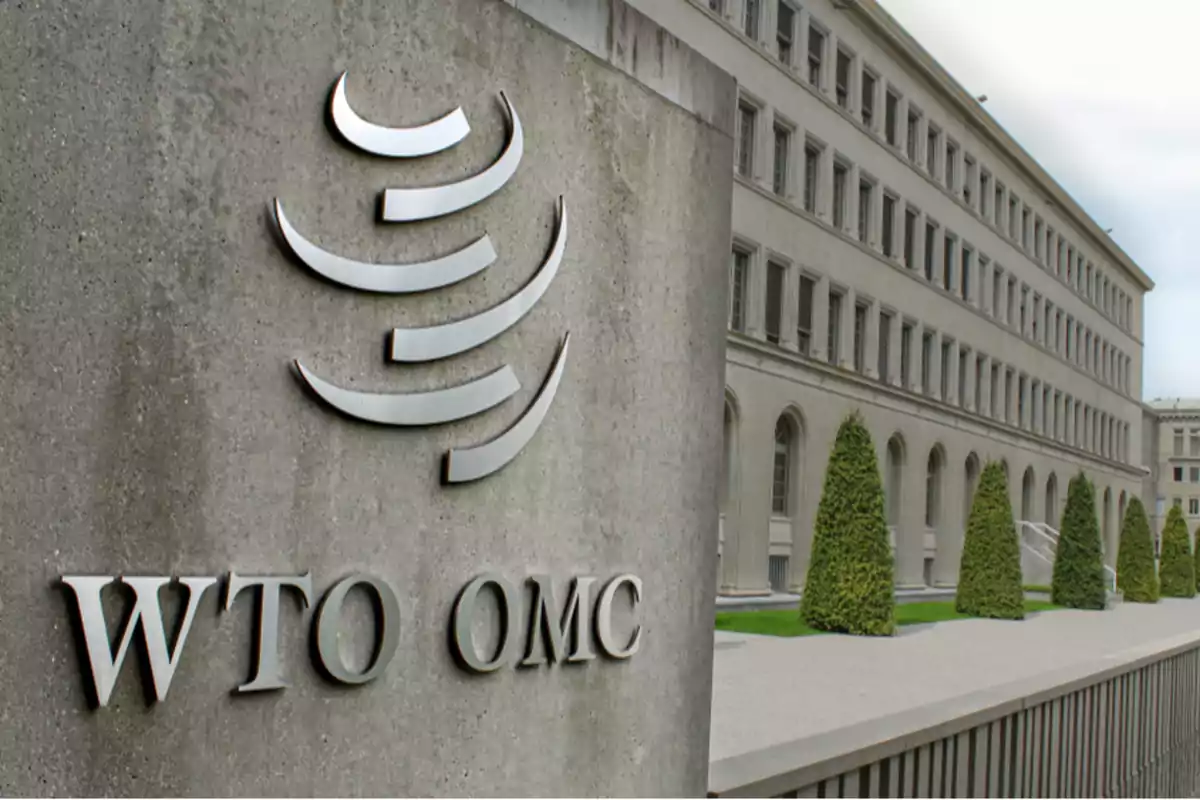
The European Union threatened to impose more tariffs on the United States.
After President Trump announces a free trade agreement with the United Kingdom on social media, the EU deepens its threats
The European Commission announced Thursday the possible imposition of countermeasures on U.S. imports worth up to 95 billion euros (107.2 billion dollars), if negotiations with Washington to remove a series of tariffs imposed by the U.S. president, Donald Trump.
The measures are part of the block's response to U.S. tariffs on cars, steel, aluminum, and the so-called reciprocal tariffs of 10% on most European products, which could increase to 20% after a 90-day pause that expires on July 8.
The EU's proposed countermeasures include U.S. products such as wine, fish, aircraft, car parts, chemicals, machinery, electrical equipment, and health products.

Among them are 10.5 billion euros in aircraft, 10.3 billion in vehicle parts, and 2 billion in cars, as well as 1.3 billion in alcoholic beverages like wine and beer.
The Commission will open a public consultation until June 10 for companies and member states to express their opinions before making a final decision.
Ursula von der Leyen, president of the Commission, stated that the EU remains committed to a negotiated solution, but must be prepared for all scenarios.
The Commission also announced that it will initiate legal action at the World Trade Organization (WTO), claiming that the tariffs imposed by Trump violate the organization's essential rules.

Since April, the Trump administration imposed a 20% tariff on European products, in addition to maintaining a general 10% tariff on most EU imports.
In response, the European Commission had approved 25% tariffs on 21 billion euros in U.S. imports, such as corn, wheat, motorcycles, and clothing, but temporarily suspended them pending an agreement during the 90-day truce.
The EU claims that these tariffs already affect 380 billion euros in European exports to the United States, that is, 70% of bilateral trade in goods, a figure that could increase to 97% if the United States extends its measures to products such as pharmaceuticals, semiconductors, critical minerals, and trucks.
However, the EU has chosen not to include pharmaceuticals or semiconductors in its list of countermeasures to avoid an escalation that would harm strategic sectors.

The Commission notes that its countermeasures do not reach the same volume as U.S. tariffs, since European imports from the United States are significantly lower than exports: in 2024, the EU imported goods worth 335 billion euros compared to exports of 532 billion.
Nevertheless, the block seeks a proportional response that doesn't unnecessarily escalate the trade conflict.
Additionally, the Commission is considering imposing restrictions on exports of steel scrap and chemical products to the United States, valued at 4.4 billion euros. The scrap, used as an input in the steel industry, is not subject to U.S. tariffs, and there is concern that it may be re-exported outside the block.

The publication of the list of affected products and the initiation of the process at the WTO are seen as part of a pressure strategy by Brussels while dialogue with Washington continues.
U.S. Vice President JD Vance stated that talks are ongoing, but that the United States is pressuring the EU to reduce its own trade and regulatory barriers.
Meanwhile, Trump is preparing to announce a trade agreement with the United Kingdom, which adds pressure to the EU in a context of growing global tensions in international trade.
The final decision of the European Commission on the tariffs is expected before July 8, the date on which the U.S. pause expires, and will mark a crucial point for the future of trade relations between both economic powers.

More posts: